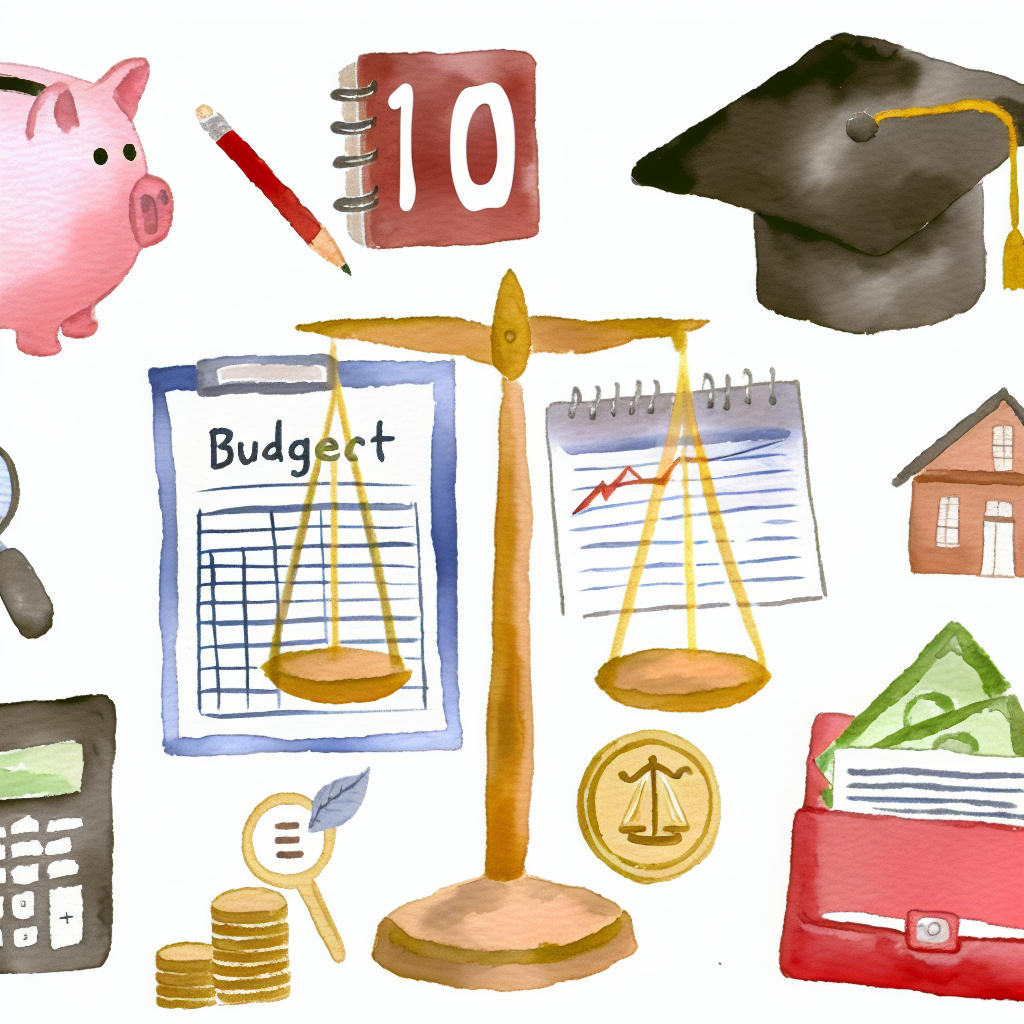Millions of people apply for credit cards, loans, and various forms of financial aid every year. However, many applications are met with rejections, leaving applicants puzzled and disheartened. Getting credit rejected is not only inconvenient but also potentially damaging to your credit score. Fortunately, there are practical tips and strategies you can employ to avoid credit rejections and improve your chances of approval.
Understanding the reasons behind credit rejections is the first step toward securing approvals. Knowing what lenders look for and ensuring your application meets their criteria can significantly boost your chances. Many factors influence credit decisions, including credit score, credit history, and the accuracy of the information you provide. By addressing these factors, you can improve your credit profile and make it more attractive to lenders.
Regularly checking your credit report and maintaining a good credit score are essential. These actions allow you to spot and correct errors, monitor your progress, and ensure that you present the best possible credit profile. Moreover, understanding how to manage different aspects of your credit—such as utilization ratio, income stability, and debt repayment—can further enhance your creditworthiness.
This comprehensive guide will delve into effective tips for avoiding credit rejections and improving approval rates. From understanding common rejection reasons to managing your credit utilization ratio and securing a co-signer if necessary, we’ll cover everything you need to know to optimize your credit applications.
Understanding the Common Reasons for Credit Rejections
Credit rejection can occur for a variety of reasons, each of which provides insight into areas that need improvement. One of the most common reasons is a low credit score. Lenders use your credit score as a benchmark to assess the risk associated with lending you money. A low score suggests a higher risk and can lead to rejection.
Another common reason is a high debt-to-income ratio. If your existing debts are too high relative to your income, lenders may believe you are unable to manage additional credit. This metric gives lenders an idea of how much of your monthly income goes toward paying off existing debts, indicating whether you’ll be able to handle new credit responsibly.
Lastly, incomplete or inaccurate information on your credit application can be the cause of rejection. Lenders rely on the information you provide to assess your eligibility. Missing or incorrect data can create confusion and lead to automatic rejection. Therefore, it is crucial to ensure that your applications are both complete and accurate to avoid unnecessary denials.
Importance of Checking Your Credit Report Regularly
Regularly checking your credit report is vital for maintaining a healthy credit profile. It allows you to catch errors that might negatively impact your score. Credit bureaus occasionally make mistakes, and these errors can lower your credit score if left uncorrected. By reviewing your report regularly, you can identify and dispute these inaccuracies before they cause any lasting damage.
Monitoring your credit report also helps you stay informed about any changes that could affect your credit score. For instance, new accounts, late payments, or changes in your credit utilization ratio can all impact your score. Regularly reviewing your report ensures you are aware of these changes and can take corrective action if necessary.
Finally, checking your credit report regularly empowers you to recognize and proactively address potential red flags. Whether it’s a sudden drop in your score or unfamiliar accounts appearing on your report, staying informed allows you to tackle issues head-on and maintain a strong credit profile.
How to Maintain a Good Credit Score
Maintaining a good credit score is essential for improving approval rates. One key strategy is to make timely payments on all your financial obligations. Late payments can significantly harm your score, so always ensure your bills are paid on time. Setting up automatic payments or reminders can help you stay on track.
Another crucial factor is to avoid opening too many new accounts in a short period. Each new account application results in a hard inquiry on your credit report, which can temporarily lower your score. It’s better to space out your applications to minimize the impact on your credit score.
Long-term credit habits also affect your score. Keeping older accounts open, even if you don’t use them frequently, can improve your score as it shows a long history of responsible credit use. Additionally, diversifying your types of credit—such as a mix of installment loans and credit cards—can positively influence your score.
Tips for Managing Your Credit Utilization Ratio
Your credit utilization ratio is a significant factor in determining your credit score. It measures how much of your available credit you are using, and lenders prefer to see this ratio below 30%. Keeping your ratio low shows that you are not overly reliant on credit and are managing it responsibly.
To manage your credit utilization ratio, aim to pay off your credit card balances in full each month. Not only does this minimize the interest you pay, but it also keeps your utilization ratio low. If you can’t pay in full, aim to keep your balance well below the 30% threshold.
Another effective strategy is to request a higher credit limit from your credit card issuer. Increasing your available credit while keeping your balance the same will lower your utilization ratio. However, be cautious with this approach, as multiple credit inquiries can negatively impact your score.
Steps to Resolve Any Existing Debts
Resolving existing debts is crucial for improving your creditworthiness. Start by creating a detailed plan to tackle your debts. List all your debts, interest rates, and minimum payments. This will give you a clear picture of your financial obligations and help prioritize which debts to pay off first.
You might consider the debt snowball or debt avalanche methods. The debt snowball method involves paying off the smallest debts first, which can provide quick wins and motivation. Conversely, the debt avalanche method focuses on paying off debts with the highest interest rates first, potentially saving you more money in the long run.
Additionally, contacting your creditors to negotiate better terms can be beneficial. Lowering your interest rates or setting up a more manageable payment plan can make a significant difference in your ability to pay off your debts. Consistently making payments according to the agreed plan will also improve your credit score over time.
Building a Positive Credit History
Building a positive credit history takes time and consistent effort. One of the best ways to build credit is to use a credit card responsibly. Make small purchases and pay off the balance in full each month. This demonstrates to lenders that you can manage credit wisely.
Another way to build positive credit history is through secured credit cards or credit-builder loans. These financial products are designed for individuals with limited or poor credit history. Secured credit cards require a deposit that acts as your credit limit. Credit-builder loans hold the amount you borrow in a savings account until you’ve made all your payments.
Timely payment of all bills, including utilities, rent, and other non-credit-related obligations, can also contribute to a positive credit history. Some landlords and utility companies report payment history to credit bureaus, so ensuring on-time payments can help build your credit score.
The Role of Stable Income and Employment in Credit Applications
Stable income and employment history play a critical role in credit applications. Lenders look for predictable and sufficient income to ensure you can repay your debts. Demonstrating stable income provides reassurance to lenders about your repayment capacity.
Maintaining consistent employment with the same employer over a substantial period is beneficial. Frequent job changes can be a red flag for lenders, indicating instability. A steady job history proves that you have a reliable source of income.
Providing documentation such as pay stubs, tax returns, and employment verification can further strengthen your credit application. These documents offer proof of your income and employment status, making it easier for lenders to trust in your ability to repay the borrowed amount.
How to Provide Accurate and Complete Information on Applications
One of the simplest yet most overlooked aspects of improving credit approval rates is ensuring that your application is complete and accurate. Providing incorrect or incomplete information can lead to automatic rejections, as lenders rely heavily on the details you submit to make their decisions.
Detail all requested information thoroughly and double-check for accuracy. This includes your name, address, employment history, and income details. Any discrepancies can raise red flags, so it’s better to be meticulous when filling out your application.
Documentation supporting your claims is also essential. Attach necessary financial documents like pay stubs and tax returns. These improve the credibility of your application and make it easier for lenders to verify the information you’ve provided.
The Importance of Avoiding Multiple Credit Inquiries
Every time you apply for credit, a hard inquiry is made on your credit report. While a single inquiry has minimal impact, multiple inquiries in a short period can significantly lower your credit score. This is because it may appear as if you’re desperate for credit or unable to manage your finances.
To avoid the negative effects of multiple inquiries, be selective about the credit applications you submit. Only apply for credit when necessary and ensure you meet the eligibility criteria to improve your chances of approval.
Rate shopping, especially for large purchases like a mortgage or car loan, is an exception. Credit scoring models often treat multiple inquiries within a short period for the same type of credit as a single inquiry. This allows you to shop around for the best rates without damaging your credit score.
Securing a Co-signer if Necessary
If you have a poor credit history or insufficient credit, securing a co-signer can be an effective strategy to improve your chances of credit approval. A co-signer is someone with good credit who agrees to share responsibility for the loan. Their strong credit score can offset your lower score, making you a more attractive candidate to lenders.
Choose a co-signer who has a stable income, good credit history, and preferably someone you trust. This is crucial because both parties are legally obligated to repay the loan. If you default, the co-signer’s credit will also be negatively affected.
Securing a co-signer can also help you build your credit. Making timely payments on the loan will positively impact both your credit and your co-signer’s credit history, helping you establish a stronger credit profile over time.
Monitoring and Protecting Your Credit from Fraud
Credit fraud is a growing concern, and protecting your credit information is crucial for maintaining a good credit score. Regular monitoring helps you spot any unusual activity, such as unauthorized accounts or transactions, and enables you to act quickly to mitigate damage.
Use credit monitoring services that provide alerts for suspicious activities. Many credit card companies and financial institutions offer these services either for free or at a nominal fee. Additionally, secure your personal information by using strong passwords, avoiding sharing sensitive details, and keeping an eye on your financial statements.
If you suspect fraud, place a fraud alert on your credit report. This makes it more challenging for fraudsters to open new accounts in your name. You can also consider freezing your credit, which blocks lenders from accessing your credit report, making it harder for identity thieves to open new accounts.
Conclusion
Credit rejections can be frustrating and discouraging, but understanding the reasons behind them and taking proactive steps can significantly improve your approval rates. By regularly checking your credit report, maintaining a good credit score, and managing your credit utilization ratio, you can create a strong credit profile that appeals to lenders.
Addressing existing debts and building a positive credit history are also crucial. Consistent, on-time payments, prudent debt management strategies, and understanding how different financial actions impact your credit score can make a substantial difference. Additionally, showcasing stable income and employment, and providing accurate information, can further enhance your approval chances.
Avoiding multiple credit inquiries and securing a co-signer if needed are practical strategies that can improve your creditworthiness. Lastly, monitoring and protecting your credit from fraud ensures that your credit profile remains intact and reliable.
By following these effective tips, you can navigate the complexities of credit applications with confidence. Implement these strategies to not only avoid credit rejections but also to build and maintain a robust credit score that opens doors to financial opportunities.
Recap
- Regularly check your credit report to correct errors and monitor changes.
- Maintain a good credit score by making timely payments and avoiding too many new accounts.
- Manage your credit utilization ratio by keeping balances low and considering higher credit limits.
- Resolve existing debts using strategies like the snowball or avalanche methods.
- Build a positive credit history through responsible use of credit products.
- Stable income and consistent employment are crucial for credit applications.
- Provide complete and accurate information on your credit applications.
- Avoid multiple credit inquiries to protect your credit score.
- Use a co-signer if necessary to improve approval chances.
- Monitor and protect your credit from fraud to maintain a healthy credit profile.
FAQ
Q1: How often should I check my credit report?
A1: You should check your credit report at least once a year from each of the three major credit bureaus.
Q2: Can closing old credit accounts help my credit score?
A2: No, closing old accounts can actually lower your score by reducing your available credit and the length of your credit history.
Q3: Will checking my own credit report lower my score?
A3: No, self-inquiries are considered soft pulls and do not affect your credit score.
Q4: How can I dispute errors on my credit report?
A4: Contact the credit bureau that issued the report and provide documentation to support your claim.
Q5: Is it better to pay off a credit card fully or leave a small balance?
A5: It’s best to pay off your credit card in full each month to avoid interest charges and maintain a low utilization ratio.
Q6: What is considered a good credit score?
A6: A credit score of 700 or above is generally considered good, with 750 or above being excellent.
Q7: How long does negative information stay on my credit report?
A7: Most negative information can stay on your credit report for up to seven years, while bankruptcy can stay for ten years.
Q8: Can I get a loan with a co-signer if I have bad credit?
A8: Yes, a co-signer with good credit can improve your chances of loan approval.
References
- “Understanding Your Credit Score,” Experian, Experian Credit Score Guide
- “How to Improve Your Credit Utilization Ratio,” NerdWallet, NerdWallet Credit Utilization Guide
- “Steps to Take if Your Credit Card Application is Denied,” The Balance, The Balance Credit Card Application Tips











